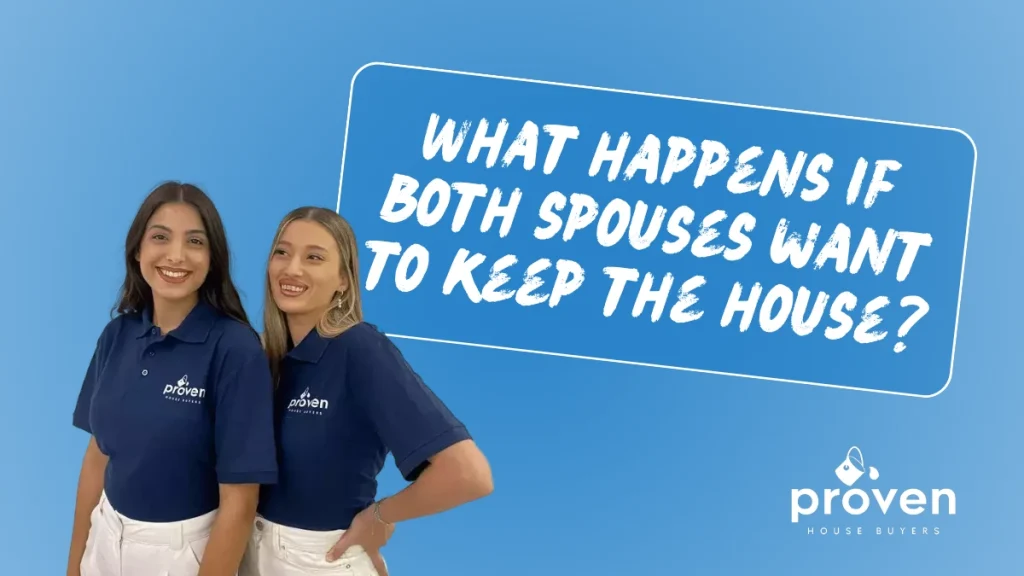What Happens If Both Spouses Want to Keep the House in Mentor?
Divorce is never easy, and when both spouses want to keep the house in Mentor, the situation can feel complicated and stressful. You might be asking yourself: “How can we both stay in the home? What are our options? And how do we make it fair?”
If you’re in Mentor and facing this scenario, you’re not alone. Many couples struggle with deciding who gets the house, especially when both have emotional and financial ties to the property. Understanding the options and next steps in Mentor can make this process much smoother.
How Property Division Works When Both Spouses Want the House in Mentor
In Mentor, like in the rest of Ohio, marital property needs to be divided fairly. When both spouses want to keep the house, there are a few paths you might consider. Often, couples in Mentor start by looking at creative solutions that allow both parties to feel heard and financially secure.
Sometimes, one spouse buys out the other’s share, agreeing on a fair price based on the home’s value in Mentor. Other times, the home may be refinanced so one spouse can assume full responsibility for the mortgage, taxes, and upkeep. Both of these approaches can work, but they often require negotiation, financial readiness, and cooperation, which isn’t always easy during a divorce in Mentor.
Working Out an Arrangement in Mentor
If both spouses can afford to buy the other out, the first step is usually trying to come to a mutual agreement. In Mentor, couples often explore creative solutions that meet both financial and emotional needs.
Third-Party Appraisal & Final Offer in Mentor
One common method is a formal third-party appraisal. You hire an appraiser to determine the home’s fair market value in Mentor. Once the value is set, each spouse can submit a sealed “final offer” at or above that amount. The higher offer wins the home, and the winner pays the other spouse the agreed buyout amount. This method ensures fairness and keeps negotiations objective.
Mediation in Mentor
A neutral mediator in Mentor can help structure the buyout in a way that’s fair and practical. Mediation is flexible, it can include timing, payment schedules, or even creative arrangements. For example, if one spouse wants to stay for the kids to finish school, the agreement might allow her to live in the house for three years while paying a portion of the mortgage, with the other spouse buying her out later. Mediators in Mentor help both sides come to terms without the stress and cost of a court battle.
Private Sale Between Spouses in Mentor
Sometimes, both spouses simply agree to sell the house privately to each other for a negotiated price. This can be faster and less stressful than involving courts or formal appraisals. In Mentor, this is often combined with mediation to ensure the terms are clear and enforceable.

Court-Based Options in Mentor
If an agreement isn’t possible, the courts in Mentor may step in. Here are some of the ways a judge might resolve the situation:
Sell on the Open Market
If both spouses cannot agree, the court may order the house to be sold on the open market. The proceeds are split according to the equitable distribution rules in Mentor. This ensures both spouses get a fair share, even if neither can buy the other out.
Shared Ownership in Mentor
In some cases, the court may allow shared ownership for a period of time. This means both spouses legally own the house and share responsibilities like mortgage, taxes, and upkeep. While rare, it can be a temporary solution while one spouse arranges financing to buy the other out.
Partition Action in Mentor
A partition action is a legal process that can force the sale of a property when co-owners (in this case, divorcing spouses) cannot agree. The court can order an open-market sale or sometimes assign ownership to one spouse with compensation to the other.
Assignment Based on Equitable Factors in Mentor
The court may consider factors like income, childcare, length of residence, and contributions to the home. Based on these, a judge may assign the house to one spouse and require them to pay the other a fair buyout amount. In Mentor, these equitable considerations often guide the decision if spouses cannot negotiate directly.
How Can a Cash Buyer Help If You Decide to Sell and Split the House in Mentor?
Sometimes, even when both spouses want the house and have the means, coming to an agreement can be difficult. Negotiations can drag on, emotions run high, and the last thing anyone wants is more stress. If you and your spouse can’t agree, or if the court decides that the house needs to be sold and the proceeds split, a cash buyer in Mentor can make the process much simpler.
A cash buyer can step in and purchase the home quickly, as-is, without repairs, inspections, or drawn-out negotiations. This means you don’t have to worry about who lives there while the sale is pending, how long the property sits on the market, or extra costs piling up. For many couples in Mentor, selling to a cash buyer is a way to just get it done, divide the equity fairly, and move forward without lingering conflict. It’s fast, clean, and allows both spouses to walk away with their share, giving closure and peace of mind after a complicated situation.
Frequently Asked Questions About What Happens If Both Spouses Want to Keep the House in Mentor
Can both spouses stay in the house in Mentor after divorce?
Yes, but it requires a legal arrangement, shared ownership, or temporary agreement.
How does a third-party appraisal work in Mentor?
An independent appraiser sets the fair market value, then each spouse can submit a sealed offer to buy the other out.
What is mediation and how does it help in Mentor?
Mediation involves a neutral professional helping spouses agree on buyout terms, timing, and payments without going to court.
What if we can’t agree and go to court in Mentor?
The court may order an open-market sale, shared ownership, or assign the house based on equitable factors.
How does a partition action work in Mentor?
A partition action is a legal process that forces a sale or assigns ownership when co-owners cannot agree.
Can creative arrangements work in Mentor?
Yes, arrangements like allowing one spouse to live in the house for a few years while paying partial mortgage can be structured with mediation.
When might a cash buyer in Mentor be the best option?
When negotiations fail, repairs are needed, or a fast resolution is necessary, a cash buyer can purchase the home as-is and divide the proceeds.
Divorced Couples In Mentor Finds Our Process Fast & Easy, This Is What They Have To Say:
We promise to do our best so the sale will be as fast and easy as possible
If Both Spouses Want the Mentor House, What to Do?
If both spouses want to keep the house in Mentor, the first step is to explore options that work for both of you, whether that’s a buyout, mediation, or a creative arrangement that considers timing, payments, or even living arrangements. If an agreement can’t be reached, the court may step in and order a sale, shared ownership, or another equitable solution.
And if the decision ends up being to sale the house during divorce and split, working with a cash buyer in Mentor can make the process fast, simple, and stress-free, allowing both spouses to get their fair share and move forward with peace of mind. The key is understanding your options early, communicating clearly, and choosing the solution that best fits your situation in Mentor.




